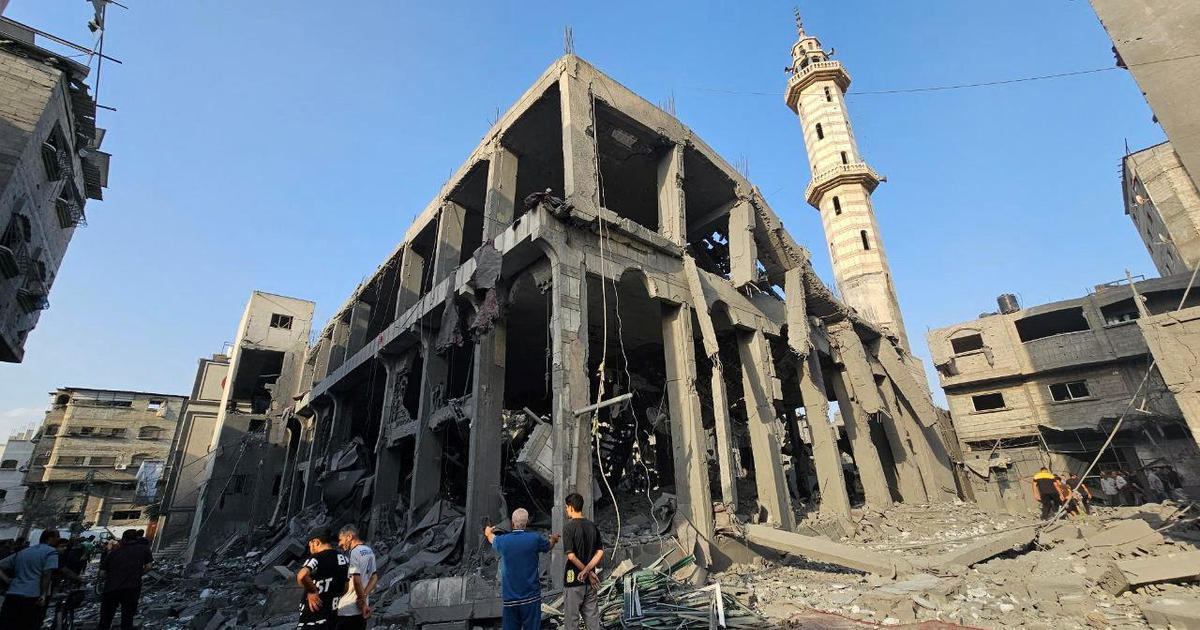The second aid convoy destined for desperate Palestinian civilians reached Gaza on Sunday, as Israel widened its attacks to include targets in Syria and the occupied West Bank. The Israeli prime minister warned Lebanon’s Hezbollah militant group that if it launches its own war, “we will cripple it with a force it cannot even imagine.”
Israel has been preparing for a ground offensive in Gaza following Hamas’ October 7 rampage through Israeli communities. Tanks and troops have been stationed at the Gaza border, waiting for the command to enter. Israel’s military spokesman, Rear Adm. Daniel Hagari, stated that airstrikes have been intensified across Gaza to hit targets and minimize risks to troops in the next stage of the war.
Concerns of a widening war grew as Israeli warplanes struck targets in Gaza, Syria, and the occupied West Bank, including a mosque allegedly used by militants. Tensions have also escalated in the West Bank, with Israeli forces battling militants in refugee camps.
Prime Minister Benjamin Netanyahu warned Hezbollah that if they start a war, they will face devastating consequences. In response, Hamas reported fighting with Israeli forces in southern Gaza and destroying a tank and two bulldozers. A soldier was killed and three others wounded during a rescue mission inside Gaza to save over 200 hostages from the Oct. 7 attack.
The first aid shipment into Gaza since the complete siege imposed by Israel two weeks ago consisted of 20 trucks. A second batch of aid was allowed into Gaza at the request of the United States, which included water, food, and medical supplies. The U.N. agency for Palestinian refugees confirmed the arrival of 14 trucks, while Israel continued to restrict fuel from entering Gaza.
Relief workers expressed the urgent need for more aid to address the growing humanitarian crisis in Gaza. The U.N. called for 100 trucks a day to enter, as half of the territory’s 2.3 million people have fled their homes. Hospitals are running low on medical supplies and fuel, forcing doctors to perform surgeries using sewing needles and vinegar as disinfectant. Ventilator shortages are causing doctors to ration treatment.
Palestinians in U.N.-run schools and tent camps are experiencing food and water shortages, as the lack of fuel has crippled water and sanitation systems. Airstrikes have intensified across Gaza, including in the southern part, where civilians have been advised to seek refuge. Hospitals are overwhelmed with casualties, and dozens of bodies have been brought in, largely comprising of children, women, and the elderly.
The Israeli military claims that it targets Hamas fighters and installations, not civilians. Palestinian militants have fired over 7,000 rockets at Israel, resulting in civilian casualties. The U.S. Secretary of State, Antony Blinken, placed responsibility on Hamas for both the initial attack and the subsequent civilian deaths. He emphasized that Hamas operates among the civilian population and uses hospitals and schools to hide their tunnels.
Israeli airstrikes targeted international airports in Damascus and Aleppo, rendering the runways unusable. Israel has conducted several strikes in Syria to prevent Hezbollah and other militants from obtaining weapons. In response to rocket fire, Israel struck Hezbollah in Lebanon.
The situation remains unpredictable, and the U.S. State Department has advised Americans in Lebanon to leave due to the security situation. Commercial flights are still available, albeit with reduced capacity.


